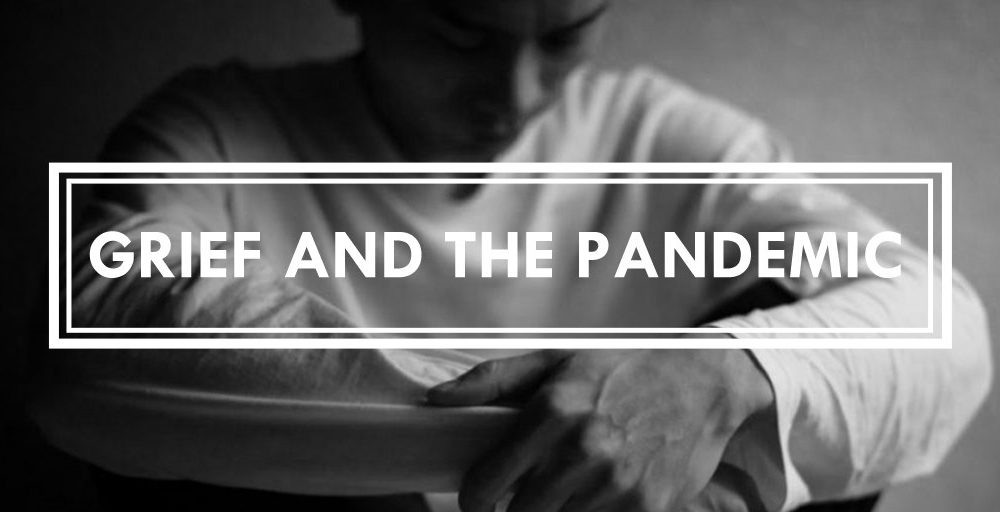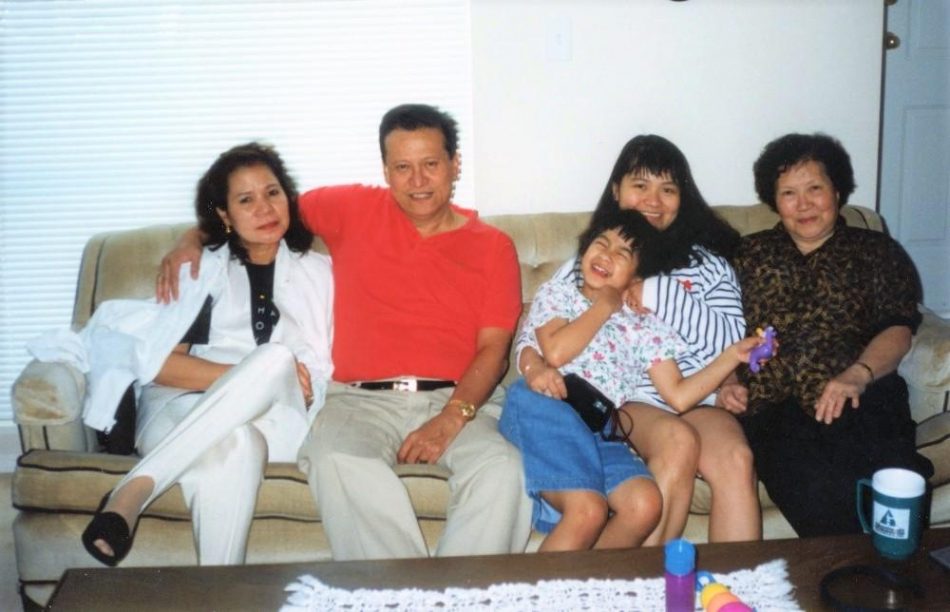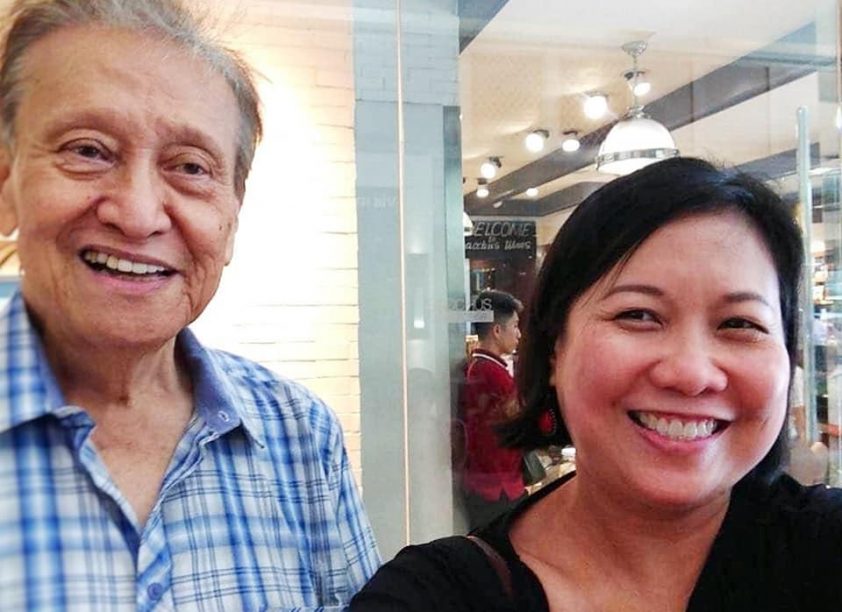Home > Blog > Covid-19
Grief and the Pandemic

During this pandemic, death has become a daily update. As of writing, COVID-19 has caused nearly 900,000 deaths across the world, while the Philippines reports 3,890 fatalities.
But these numbers don’t reflect the bigger picture of deaths during the pandemic. According to Our World in Data, the term “excess mortality” refers to the number of deaths beyond normal situations, showing the mortality impact of the pandemic. These “excess deaths” may be related to the following:
- Deaths that occurred at home since some countries only report COVID-19 deaths in hospitals
- Untested individuals since some countries only report COVID-19 deaths with confirmed tests
- Poor death-reporting systems
- Deaths from other causes, but were still impacted by the pandemic because of the strain on healthcare systems, fewer people going out of their homes to get treatment, and less financial means to seek treatment
Last June, when the global death toll from COVID-19 was still below 500,000, BBC reported that on top of this number, at least 130,000 more people have died during the pandemic. Mortality data from 27 countries showed that overall deaths are beyond average even when the virus has been factored in. For example, in Jakarta in Indonesia, deaths were 55% higher than usual, resulting in 4,700 more deaths not directly caused by COVID-19 from March to May.
 Rachelle’s Uncle Ric (in red) during happier, healthier days. Rufina (far right), passed away only 2 weeks after her brother Ric.
Rachelle’s Uncle Ric (in red) during happier, healthier days. Rufina (far right), passed away only 2 weeks after her brother Ric.
Tales of Loss
Rachelle’s experience on recent family deaths seems to confirm the “excess deaths” happening all over the world. “In the span of less than two months, I lost my uncle, my aunt, a cousin, and a grandparent—not from COVID-19, but from the fact that they all had underlying illnesses. Because of the pandemic, it was quite hard to get treatment and immediately get admitted to a hospital,” she shares. “The sheer number of daily announcements on social media I read from friends who’ve lost their loved ones is mind-boggling and devastating.”
Rachelle’s Uncle Ric, who she confides was like a second father to her, learned he had cancer early this year. Though he received chemotherapy and other required treatments, the lockdown made it difficult for him to visit the hospital. Eventually, they found a doctor from a nearby clinic who could administer treatments. Still, Rachelle’s uncle passed away last month. “The speed of his deterioration was quite a shock to everyone. It’s as if the lockdown sped it up. It seemed that the difficulty of getting treatment, getting a hospital room, and the overall isolation from loved ones really exacerbated his illness.”
For Gerry, this pandemic marks the passing of his best friend Don, who initially complained of a sore throat and difficulty in breathing. “He was initially diagnosed with an infection of the throat—an abscess. To prevent the spread of the infection, he was intubated. The day after, some complications happened and his infection became sepsis. He went into cardiac arrest and then into a coma. He flatlined for 15 minutes but was revived and was placed on a ventilator. His swab test for COVID-19 was negative so he was administered heavy doses of antibiotics. A week later, he passed away.”
Karen, who had her first pregnancy before the pandemic, was excited to raise a child with her husband. Because of her delicate pregnancy, she was confined to bed rest, finally getting the clearance to move around in early May. But during her 21st week of pregnancy in June, her husband was hospitalized due to an undiagnosed heart problem. “Because of COVID-19, the hospital we went to was very strict. Once companions entered the hospital, they couldn’t leave until the patient was discharged. We didn’t have anyone to stay with my husband, so against my doctors’ initial wishes, I stayed. That same evening, we found out that my mother, who works overseas, contracted COVID-19. As my husband was put on complete bed rest, I had to assist him.”
A few days later, Karen felt fluid trickling down her leg. Her obstetrician ordered her to stay in bed, but she was only able to do so after finding someone else to watch over her husband. Because she was losing amniotic fluid, Karen was confined to the hospital bed next to her husband’s. Two days later, she felt an incredible pain on her lower back, and felt something sliding down her vagina. “I felt the top of our baby’s soft, tiny head on the palm that I had been holding against my vagina, as if that would close it up. I screamed for my husband, for the nurse. Our baby had mostly slid out of me by then, but I cradled the baby ever so gently as he was still partly inside. I had an instance of clarity as the nurse came in. It was over. Our baby was gone.”
 Gerry, 2nd from left; and his best friend Don in green, center (Photo by Joy Galang)
Gerry, 2nd from left; and his best friend Don in green, center (Photo by Joy Galang)
Anatomy of Grief
According to psychologist Roselle G. Teodosio, owner of IntegraVita Wellness Center, grief prevails during the pandemic. “Grief comes in many forms,” she explains. “It is not just about losing a loved one, but an ending to something. It may be work, home, lifestyle, relationships, connections—basically losing something familiar or significant to us.”
To better understand grief, Teodosio shares its different kinds:
- Anticipatory grief is the feeling of loss even before the death actually happens. “If a loved one is diagnosed with a terminal illness, grief can creep in without you recognizing it. It can also mean guilt on the part of the griever because it’s equivalent to giving up hope. But this can also lessen the impact of the actual pain after the person passes because it was expected.”
- With common grief, people carry on with their daily routine without showing much pain. “People would often misinterpret the actions of the griever as someone who was not affected by the loss. But acute feelings of grief may come in ‘bursts’ not observed by others unless they are with the griever 24/7.”
- Complicated grief is so overwhelming that the griever may find it difficult to function. “The pain may be debilitating that the person can have irrational thoughts that can lead to self-harm or mental illness— if not given the proper care and support,” Teodosio warns.
- Delayed grief does not appear immediately after the loss, its full impact felt months after the event. “This is more common when there is another grief or significant change that happens in a person’s life,” Teodosio states. “It happens when the griever sets aside her feeling to focus on a more pressing situation.”
- Inhibited grief is when person is in denial or refuses to face reality. “They usually distract themselves in the hope that they can avoid the pain. This may lead to exhaustion and can cause chronic physical pain.”
- Exaggerated grief, similar to the complicated grief, may come when the person has experienced two or more losses within a period of a few weeks or months. “The griever may be unable to cope with the losses since there is little or no time to process each loss. This may lead to depression or anxiety or other mental illnesses if not given proper attention.”
 Gerry (in blue, center) and Don (in green, right)
Gerry (in blue, center) and Don (in green, right)
Grief and the Pandemic
Teodosio states that the general feeling of loss in this time of a pandemic exacerbates the feeling of losing a loved one. Grievers may feel stretched to their limits, and any additional stress can trigger mental suffering.
When Karen lost her baby, she was a mess of emotions, unable to process the trauma until a few hours later. “Grief is a strange, shape-shifting, unforgiving monster. Loss is always vicious, no matter what, but most especially when it’s unexpected. I’ve already lost four family members that way—one day they were fine, and the next day they were gone,” she confides. “But this one was harder than I thought possible.”
Almost two months after his best friend’s death, Gerry still can’t fully function. “It’s like I want to still do the things we’ve always done together, but I have this fear that things will never be the same without him, so why bother? I listen to his Spotify playlist, and just wish that he’d still be around. I try my best to get on with life but there’s always this heartache that I feel all the time. We always did things together.”
For Rachelle, experiencing multiple deaths this pandemic has left her disoriented. “When yet another relative passed away last week, I called my Uncle to tell him, only to realize while I was dialing the phone that he was already dead,” she shares. “I think the process of grieving is distorted these days. It’s cut short, or it’s rushed or incomplete. Bodies need to be cremated within 24 hours. If it’s ECQ, wakes with even close relatives aren’t allowed. There is simply no time to grieve. And you can’t just run to a friend or loved one to seek comfort—you could infect each other and die, too. It’s terrible.”
Teodosio explains these amplified emotions: “This pandemic has upended any sense of normalcy that we felt. This loss of security and a loss of a loved one leave a person in a very vulnerable position. It can feel like we are grieving in isolation. Adding to this is the guilt from not having been able to comfort the dying loved one. No proper goodbyes, no last hug or kiss or words were shared.” Because of the pandemic, grievers don’t get the closure they need and are left in grief limbo. “One is not physically present to see the loved one take his last breath or do the rituals according to their belief. There is no sense of finality to jumpstart the grieving process,” Teodio says. “This can create chronic anxiety, chronic sorrow and even depressive symptoms.”
Gerry, who has lost his parents at different times before the pandemic, recalls the overwhelming support he and his brothers received, which helped them to pull through. “In Don’s case, I think I’ve never felt so much loneliness and isolation. It’s true that there are so many ways to keep in touch nowadays, but it’s never the same as face-to-face interaction, and someone sitting beside you and giving you words of comfort. Losing a loved one nowadays is a statistic or another name to be crossed out on your list of friends. I can’t imagine a way of living like this.”
Karen and her husband are slowly coming to terms with the loss of their child, who may have had a better chance of survival if it weren’t for the pandemic. “I did my best to rest and care for myself and the baby as the doctor ordered, but the pandemic made it difficult to go to the doctor whenever I wanted. We had planned to get a yaya for me as time went on, but quarantine restrictions meant it was almost impossible to find help right away.” Because her husband is required to be on field, Karen finds it difficult to manage her grief. “At this point, I don’t even expect to go back to my old life. I just want a life, any okay life, that doesn’t keep me trapped at home by myself. I need my husband now, of all times, and he can’t be with me because of the pandemic.”
 Rachelle and her Uncle Ric last year
Rachelle and her Uncle Ric last year
Coping with Loss
Most of us are familiar with the five stages of grief: denial, anger, bargaining, depression and acceptance. But Teodosio reiterates that one doesn’t necessarily go through these stages in a linear pattern. “There is no standard formula in dealing with grief and how to process it,” she says. “One can go back and forth between stages or even skip some of them. The sequence of the stages is just a reminder to those grieving that there is an end to the pain, and in effect ‘a light at the end of the tunnel.’” Teodosio stresses that there is no “normal” amount of time to grieve, and that a person should not be pressured into recovering just because it had been a few months or so. She offers these pointers for the grieving:
Learn to accept that grieving needs time. Grieving is a process, and acknowledging the pain is accepting one’s reality.
Talk to others. “Regardless of how hard it can be to connect with others, it is imperative that you don’t isolate yourself,” Teodosio advises. “Seek support from family and friends, or even professional help if needed.”
Practice self-care. It is important to have enough sleep, to eat well and exercise regularly. The stress of facing a loss can quickly drain you.
Try to return to your hobbies. Having activities that bring you joy will help in coping. Try to discover new hobbies to distract yourself from the sadness and loneliness.
Try writing a journal of gratitude. Amidst the negative emotions, try to remember the things to be grateful for. Even the littlest, most random things will help to refocus your attention.
Karen copes by picturing her baby as a little angel, whom she’s named Jethro. “Within the first few days of Jethro’s passing, so many things were happening, and sometimes we would ask Jethro for favors. One of those was ‘Please watch over Lola in the UAE because she is sick. Please ask God to help her get well.’ My mom developed pneumonia due to COVID-19, and had difficulty in breathing. A few days later, my mom called to say she tested negative for the first time. She believed Jethro had helped her. It was a great comfort to hear that.”
Though Gerry finds it difficult to carry on, he plans to make the rest of his life a tribute to his dear friend. “In all the things I’ll be doing in the near future, I’ll put a small piece of him just to keep him really close and keep my grief at bay. Do a few triathlons, surf waves, dive, create artworks all in his honor. But I feel that I see him in all of my friends and loved ones now. I should also remember to laugh and smile more since that’s the best way to give him tribute.
Rachelle liked like to remember her uncle as he was in his last year—funny, laidback and optimistic. “To him, the pandemic wasn’t something to worry about; he just soldiered on. I wish I had the same optimism, even during dire circumstances.”
If you’re anxious or depressed, don’t hesitate to reach out to the following:
- Roselle Teodosio (psychologist) – 09166961223 and 09088761223 or email: selteodosio@gmail.com
- National Center for Mental Health Crisis – 09178998727
- Philippine Mental Health Association – 09175652036
- Philippine Psychiatric Association – 09189424864

